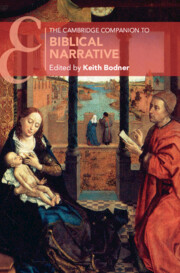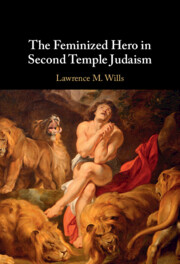Refine search
Actions for selected content:
6 results
Chapter 25 - Aunt Ester and Performing Memory
- from Part IV - Critical and Comparative Contexts
-
-
- Book:
- August Wilson in Context
- Published online:
- 09 June 2025
- Print publication:
- 26 June 2025, pp 305-318
-
- Chapter
- Export citation
8 - Theaters of Empire and Exile in Daniel and Esther
-
-
- Book:
- The Cambridge Companion to Biblical Narrative
- Published online:
- 30 January 2025
- Print publication:
- 06 February 2025, pp 152-173
-
- Chapter
- Export citation

The Cambridge Companion to Biblical Narrative
-
- Published online:
- 30 January 2025
- Print publication:
- 06 February 2025

The Feminized Hero in Second Temple Judaism
-
- Published online:
- 09 January 2025
- Print publication:
- 23 January 2025
Introduction
-
- Book:
- Liberty and the Politics of the Female Voice in Early Stuart England
- Published online:
- 24 February 2022
- Print publication:
- 03 March 2022, pp 1-32
-
- Chapter
- Export citation
5 - The Philosophical Styles of Hellenistic Judaism
- from Part III - Persistence in Hellenistic Judaism
-
- Book:
- Biblical Philosophy
- Published online:
- 13 April 2021
- Print publication:
- 22 April 2021, pp 151-180
-
- Chapter
- Export citation
